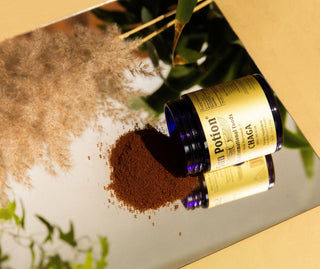Decreasing stress is essential for the health and balance of all our mind-body systems, but it’s often easier said than done. In our increasingly complex and uncertain world, our bodies have been conditioned to maintain a constant low (or high!) level of the stress response—the state of our nervous system best known as “fight, flight, or freeze.”
Chronic stress can have a number of different effects on the body, one of which is a depletion of reproductive hormones, which can be described as having a yin, or building, energy in holistic medicine traditions (stress is considered yang, or depleting). Women and men can suffer from such imbalances, but women’s unique physiology means there are more ways that things can go out of whack—from menstrual irregularities, dramatic shifts before and during menopause, and other conditions like fibroids, polycystic ovarian syndrome (PCOS), estrogen deficiency or dominance, infertility and more.
Every woman has a unique health history that will determine the right protocols to support her imbalances, and there are many dietary and lifestyle strategies to help build yin and manage yang in the mind and body. The plant world is ripe with herbs, spices, and foods that support yin, whether it’s specifically in the form of phytoestrogens (plants with chemical compounds that create estrogenic effects in the body), emmenagogues (which tone the female reproductive organs), adaptogens (which reduce stress), or aphrodisiacs (which stimulate the reproductive organs). Finding ways that allow you to ground and slow down your energy daily—through meditation, time in nature, reducing exposure to screens and media, ensuring good quality and regular sleep, or other relaxing activities—will also evoke the spirit of yin.
This easy, seasonal plant-based pesto recipe supports yin from both a dietary and lifestyle component. Sun Potion’s Ashitaba is a form of the Angelica plant, which is native to Japan and beloved as a way to enhance beauty and longevity (its name means “tomorrow’s leaf” because of its rapid growth). This sweet green powder supports digestion and has high levels of vitamin B12—which can be hard to get in a plant-based diet—making it a perfect addition to the bitter greens in this pesto, which also act as a digestive stimulant. Angelica is renowned in herbal traditions (another common form is Dong Quai, used frequently in TCM) for nourishing the blood and female reproductive tissues. Here, it’s paired with Moringa, another green tropical superfood (also called “miracle leaf”) with a broad array of health benefits including support for lactation, sleep and overall relaxation.

It’d be easy to blend up a mix of Ashitaba, Moringa, and Matcha in a nourishing green tea, but incorporating medicinal herbs into our foods is a less frequent but equally potent—and tasty!—way to enjoy their health benefits. Perfect for summer’s relaxed and laid-back mealtime vibes, pesto makes use of the flavors and energetics of these herbs in a versatile and balancing form. Packed with bitter greens, which cool down the fire element that builds in summer according to Ayurveda, this pesto is easy to digest thanks to the quick sauté of the rough dandelion and kale. These foods are also rich in iron and magnesium, which are supportive for blood in their own right.
I’ve suggested serving the pesto with pasta and sautéed (or grilled!) veggies for a simple al fresco summer meal, but you can combine it with anything—lentils, bread or pita with crudités, a more diverse grilled vegetable spread, or sandwiches. It packs well for picnics and other outdoor events, and is easy to make ahead and have ready for impromptu adventures.
You can play around with the main components of this pesto—mixing different types and proportions of greens (like spinach, collards, or arugula), and fresh or dry herbs depending on what you have on hand or is in season. The combination here is quite bitter, so you can adjust accordingly to your taste. As a general rule, more lemon juice, salt, and oil will decrease the bitterness of the pesto.
Ashitaba Moringa Pesto
IngredientsFor the Pesto¼ cup pine nuts 2 tbsp. olive oil 2 garlic scapes, chopped (or 1 clove garlic) 4 cups chopped dandelion greens 2 cups chopped Lacinato kale, stems removed 1 cup chopped fresh basil ½ cup chopped fresh mint leaves ½ cup chopped fresh parsley Juice of 2 lemons 3 tsp. Ashitaba 3 tsp. Moringa 2 tsp. sea salt, plus more to garnish ½ tsp. ground black pepper ¼ cup water
To serve8 ounces angel hair pasta 2 large zucchini, chopped Crusty sourdough bread |
MethodIn a large dry skillet, toast the pine nuts on low heat until golden and fragrant, about 3 to 5 minutes. Set aside. In the same skillet, warm 1 tablespoon of the olive oil and the garlic scapes over medium heat for 3 minutes. Add the dandelion and kale. Cover and cook until the greens are wilted but still bright, about 10 minutes. Let cool to room temperature. Meanwhile, combine the pine nuts, basil, mint, parsley, and lemon juice in the bowl of a food processor or high-speed blender. Blitz until smooth. Add the Ashitaba, Moringa, salt, pepper, and cooked greens and garlic. Blitz until smooth, adding the water 1 tablespoon at a time until the pesto is completely blended. Prepare the pasta according to package instructions. Warm the remaining 1 tablespoon of olive oil in your skillet and add the zucchini. Cook over medium heat until just beginning to brown, about 10 minutes. To serve, combine a scoop of pasta and ½ to 1 cup of pesto in each bowl. Mix well, and add the zucchini. Garnish with additional lemon juice, salt, pepper, or herbs, to taste, and enjoy with a slice of bread. Store leftover pesto in an airtight jar in the refrigerator for up to 5 days. Keep extra pasta and zucchini in a separate container, and combine when ready to serve. |

Images by Jennifer Kurdyla


















